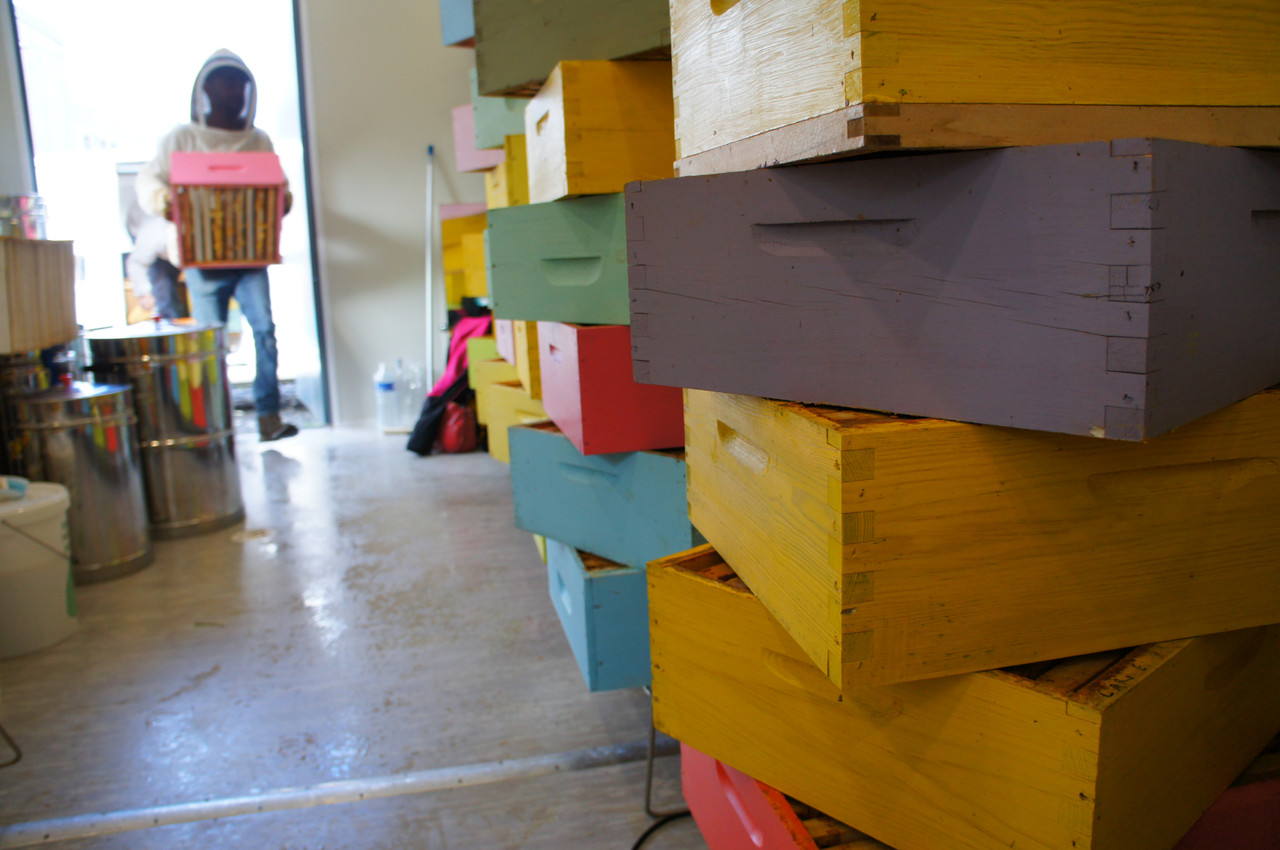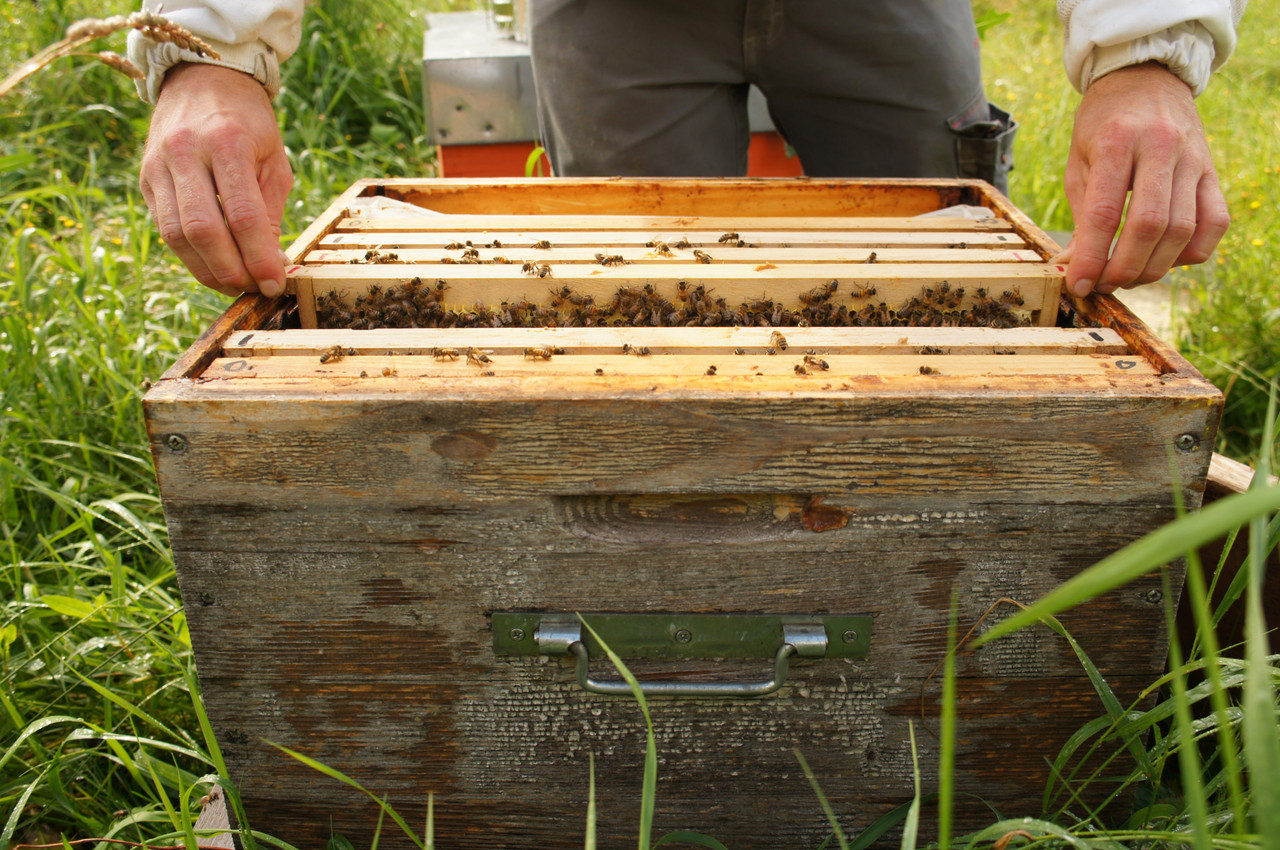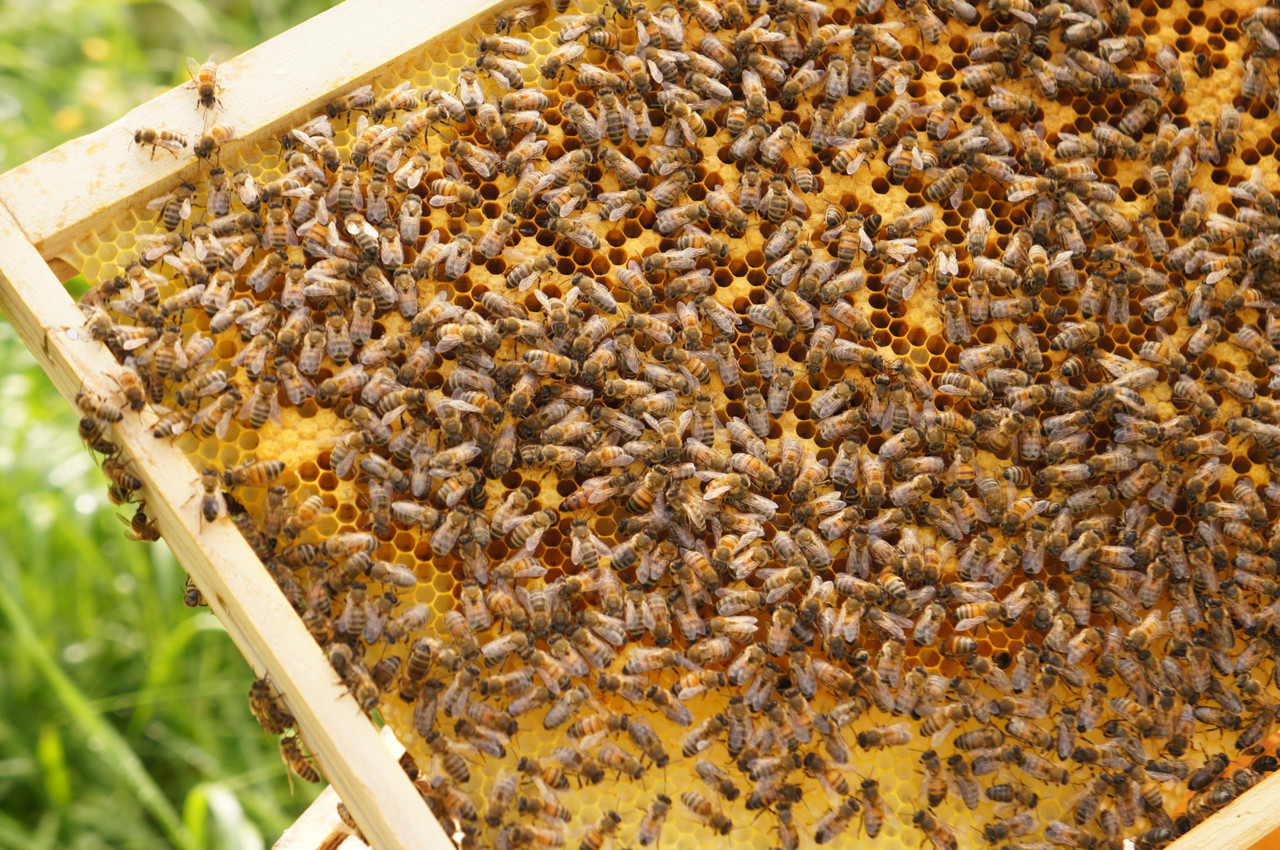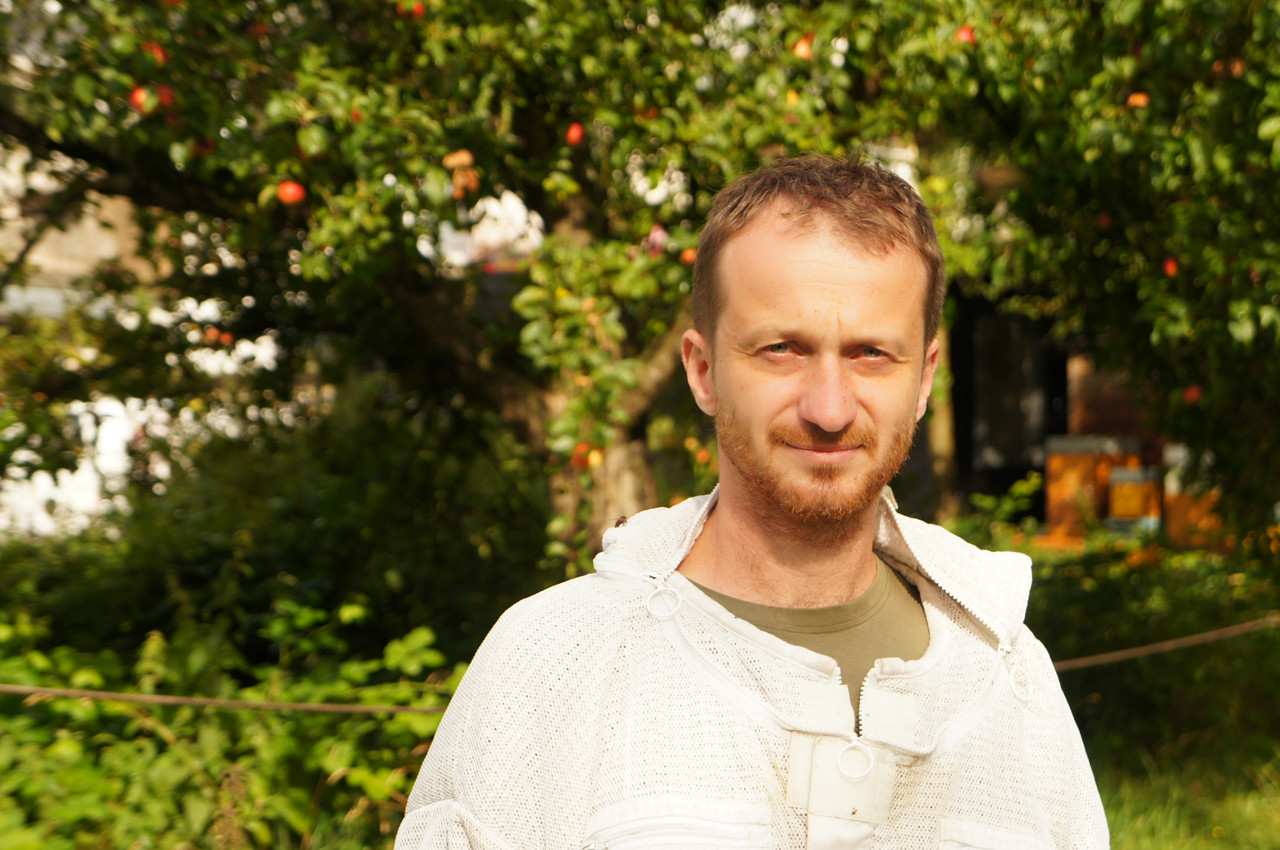“They like the way I smell when I come home in the evening,” the Luxembourgish beekeeper smiles under his mask. It’s understandable. Whether you grew up in the city or countryside, there is something wholesome and soothing about the fragrance of honey.
It would be easy to wax lyrical about the bucolic nature of being an apiarist but Zeler has little time for that. He is as busy as the thousands of bees that he works. “It’s like farming--I work during the good season, and I rest during the bad season,” he says, while emptying “supers” [drawer-like boxes containing the frames from which honey is extracted, editor’s note] from his electric van into his “honey room”.

Zeler’s assistant David stacks supers in the honey room Jess Bauldry
Nightmare year
The HQ in Limpertsberg is a prefabricated shed with frames and paraphernalia stacked outside. Zeler apologises for the mess and explains it is the busiest time of the year. It is the last day of his summer harvest, in which he collects supers from his scores of hives scattered around the city.
And there is a lot resting on this crop. “It has been a nightmare for all of the beekeepers this year,” he says. The temperature needs to reach 16°C for the nectar, the sugar source of honey, to be secreted by flowers.
“Usually, May is one of the best months. It was so cold that this year the bees couldn’t get out of the hive,” he shakes his head. As a result, he skipped the spring harvest altogether. “I made approximately half of what I produced last year, which was a very good year,” he adds.

Hugo Zeler pulls frames from a super at his headquarters in Limpertsberg Jess Bauldry
Working at the mercy of the elements, apiary is a tough career choice. For Zeler, it was never the master plan. He discovered beekeeping while working in the aeronautics sector.
The Luxembourger planted an orchard in France, close to the Luxembourg border, where he knew bees would play an important role as pollinators.
But, when his first child was born, he had less time to drive to the orchard and so moved his hives to the capital, eventually quitting his job four years ago to become a full-time apiarist. He says that the seasonal nature of the work fits well with family life. “In winter I take care of my kids,” he says.

Spot the queen bee Jess Bauldry
Bees with a local postcode
Zeler has also found a particular selling proposition in the honey market that makes his organic Hunnegkëscht brand stand out. He sells honey in city-centre grocery stores from hives located in specific districts. How does he know that the bees in Bonnevoie won’t stray into Limpertsberg? “When they collect honey in the nice season, June-July, the bees don’t go further than 500m from their hive. Which means it’s a very local honey,” he explains.
For those interested in knowing exactly what they’re eating, he even analyses the flowers the nectar is derived from. “For instance, in Limpertsberg, we have a lot of lime trees. In Bonnevoie, we have a lot of privet,” he adds.
I don’t know anyone who cares more about the environment than beekeepers. Because without the flowers, we don’t get the honey
Even with this niche, it would be difficult to make a living in such a lean year. Fortunately, Zeler has a second activity--renting hives out to around 30 companies, schools, kindergartens and hospitals in the capital. Here he takes care of everything from the paperwork to packaging the honey and organising visits, newsletters and talks.
As well as providing a second revenue stream to make his business sustainable, the corporate hives are a visual reminder to take care of the natural environment. “I always ask them to plant trees and flowers, switch off the lights at night, for bees. And they are really open to this,” says Zeler.
One corporate client even planted 300m2 of wildflowers to feed the bees. “I don’t know anyone who cares more about the environment than beekeepers. Because without the flowers, we don’t get the honey,” he adds.

